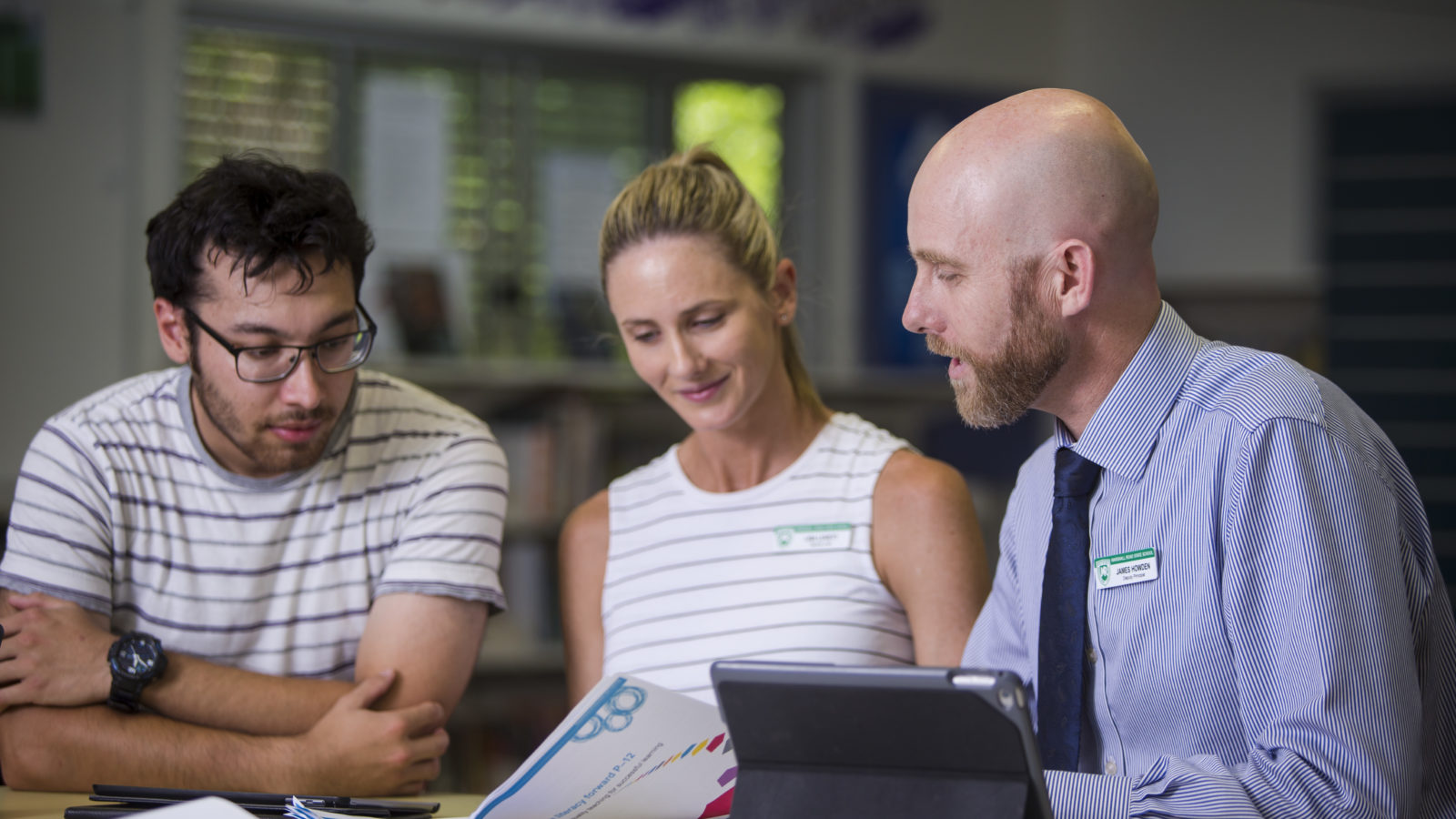Key Points
- Staying at school to the end of Year 12 can improve young people’s chances of going on to further study or finding work after school.
- Young people must attend school until they turn 16 or complete Year 10.
- Until your child turns 17, they need to be learning or earning.
- It’s ok for your teen to leave school then change their mind and return to school.
- Work with your teen’s school so together you can help your teen find a pathway that works for them.
We know that school is the best place for kids and that staying at school until the end of Year 12 can make all the difference for a young person. Research tells us that young people who leave school early do not have the same chance of success as those who complete Year 12. We also know that school provides an important social network for teens and can help them stay connected and motivated. If your teen is talking about leaving school before they turn 17, there are a few things you need to know so you can help your teen make good choices about their future.
BEFORE your child turns 16 or finishes Year 10
Your teen needs to stay at school until they turn 16 or finish Year 10, whichever comes first; this is the legal age of school attendance. Your support is really important during the high school years especially if your teen sometimes feels like giving up on school. It can be really hard if your teen is struggling at school, but there is help available. Speak to your child’s school so they can look for ways to help your child engage with their learning and stick with school. There are many ways schools can help you find the best fit for your child including trying different teaching approaches in the classroom and exploring different learning pathways until your teen finds the one that works for them.
But my child still refuses to go to school
If you and your child’s school have tried everything and your child is refusing to go to school, it might be time to call a Regional Youth Engagement Service (RYES). They can put you in touch with professionals who can support you and your child. This fact sheet provides contact details for each local RYES.
AFTER your child turns 16 or finishes Year 10
After your child turns 16 or completes Year 10, they will need to be learning or earning until they turn 17, gain a qualification, or complete Year 12. This period of schooling is known as the ‘compulsory participation phase’ and during this time, your teen can keep going to school or leave school and learn or earn elsewhere.
Keep going to school
If your teen keeps going to school for their senior years, work with the school to help your teen choose a learning pathway that suits their interests and personal learning style. Even if your child has struggled at school up to Year 10, there may be new learning pathways they can explore. For example, did you know students can:
- choose from general and applied school subjects, or do a mix of both, and work towards a QCE and/or an ATAR
- study at school and get on-the-job experience while working towards a qualification in a trade (apprenticeship) or occupation (traineeship)
- complete a vocational education and training course at school (to prepare them for work through practical learning) and earn a qualification in areas such as health, hospitality, and tourism
- do a mix of school subjects and vocational education and training so they can keep their options open.
Leave school and learn or earn
If your teen has turned 16 or finished Year 10, and they still want to leave school, they will need to be learning or earning until they turn 17. Talk to their school about your teen’s plans and options so the school principal can make sure your child’s training or employment pathway meets your legal obligation (also known as an ‘eligible option’) until they turn 17. The eligible options they can choose from include:
- enrolling in a vocational education and training course
- getting a job for at least 25 hours per week
- doing an apprenticeship or traineeship
- undertaking a Skilling Queenslanders for Work program to receive training and/or do work placements to help get a job
- a combination of the above.
Stay in touch with the school
Once they have left, it’s worth maintaining a positive relationship with your teen’s school, and even getting in touch with them every now and again, so if things don’t work out with your teen’s job or training, they can return to school or seek the school’s help in finding a new pathway.
What happens if my teen has left school but changes their mind?
If your teen leaves school and then later changes their mind, you can speak to the school about your child returning to school. The school can explain your teen’s options and suggest a suitable learning pathway for them. If you can’t reach agreement with the school about your teen returning, you can speak to your local regional office to seek their help. Each regional office has a team of experts who understands how the education system works, has strong connections with local schools, and knows how to get support for young people. If your child has turned 18, they may want to enrol at a mature age high school, study at a training organisation, or find alternative pathways to university.
Are there any situations where the rules don’t apply?
There are situations where you can apply for permission (an exemption) for your child not to attend school or participate in their training or employment pathway (eligible option) for more than ten consecutive school days. Such situations could include:
- if your child has an illness or is hospitalised (including time to recover at home)
- if your child is diagnosed with a mental health condition
- if your child has been diagnosed with a terminal medical condition
- if your family is relocating interstate or overseas and intends to return to Queensland.
Talk to your child’s school if you are thinking about seeking an exemption so you can find out whether your child is eligible for one. Their school may suggest other ways, such as flexible attendance, to enable your child to continue their schooling while working through their challenges. The school can also provide you with an application form if you decide to apply for an exemption.
If my child has a disability?
If your child has a disability, schools can make adjustments to suit your child’s needs and support them to continue to learn alongside their friends of the same age. Speak to your child’s school about what you and your teen should consider when deciding on the best pathway for them to take after they turn 16.
Talk to the team at your teen’s school
Remember: the team at your child’s school wants to work with you to help your child succeed so get in touch with them to talk about the best approach for your child.
Last Updated: 22 February 2024





